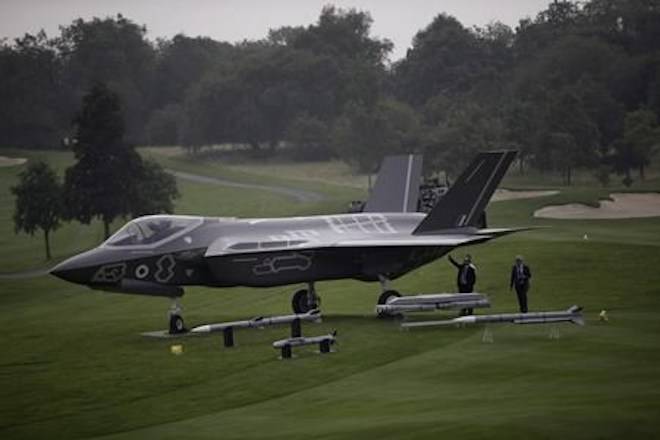Six years after helping blow up the Harper government’s plans to buy F-35 stealth fighters without a competition, auditor general Michael Ferguson is about to release a new report on Canada’s tumultuous attempts to buy new fighter jets.
This time, the focus will be on the Trudeau government’s handling of the file, which includes adopting several stopgaps while taking its time on a competition to buy new planes for the Canadian Forces.
Ferguson is expected to report specifically on the financial and technological costs of flying Canada’s venerable CF-18s — plus a handful of second-hand Australian jets — into the early 2030s, when the aircraft will be nearly 50 years old.
The auditor general is also expected to train a spotlight on the air force’s problems recruiting and retaining fighter pilots, the question of whether Canada has enough jets to defend itself — and whether the Liberals followed procurement laws.
Ferguson’s report follows several years of criticism over the Trudeau government’s decision not to launch an immediate competition to replace the CF-18s, which started flying in the 1980s and were supposed to be retired by 2020.
RELATED: Canadian air force short 275 pilots
It has been highly anticipated in political and defence circles given the damage that Ferguson’s previous report on fighter jets dealt to the Conservatives and because of the shroud of secrecy that has surrounded the Liberals’ decision-making on the file.
The Trudeau government has forced hundreds of federal civil servants and contractors working on the fighter-jet project to sign lifelong non-disclosure agreements, while many documents associated with the issue have been declared cabinet secrets.
Canada’s attempts to buy fighter jets have dragged on for nearly a decade since the previous Conservative government announced in 2010 that Canada would buy 65 F-35s without a competition, with the first to be delivered in 2015.
The Tories pushed the reset button in 2012 after Ferguson released a scathing report that found defence officials twisted procurement rules and misled Parliament. National Defence later revealed the jets would cost $46 billion over their lifetimes, much more than the sticker price.
The Trudeau Liberals waded into the issue in the 2015 election when they campaigned on a promise to hold an open and fair competition while at the same time vowing not to buy the F-35s.
But rather than launch a competition right away, as many suggested, the Liberals said in November 2016 that they would wait until 2019. In the meantime, they planned to use a hole in the federal procurement laws to buy 18 “interim” Super Hornets without a competition.
The Liberals said at the time that the Super Hornets were urgently needed because Canada did not have enough CF-18s, but opposition parties and several retired military officers accused the government of bending the rules and wasting taxpayer dollars just to avoid buying the F-35.
They demanded the government launch an immediate competition to replace the CF-18s rather than wait; the government insisted more time was necessary to ensure due diligence and a successful procurement after years of trouble.
The government ultimately scrapped the plan to buy Super Hornets from Boeing for more than $6 billion due to a trade dispute between the U.S. aerospace giant and Montreal rival Bombardier.
But rather than launch a competition, it announced plans to buy 25 second-hand fighter jets from Australia for around $500 million.
The $19-billion competition to replace the CF-18s is slated to begin officially in the spring, though a winner won’t be selected until 2021 or 2022. Delivery of the first of 88 planes is scheduled for 2025, with the last due in 2032.
The F-35 has been allowed to compete, despite the Liberals’ election promise not to buy it. It is up against the Super Hornet as well as two European designs: the Eurofighter Typhoon and Saab Gripen. A French company with a fifth option dropped out last week.
In the meantime, the government is looking to spend upwards of $1.5 billion to keep the CF-18s and Australian fighters in the air long enough for the new planes to be delivered.
Defence analyst David Perry of the Canadian Global Affairs Institute said they key question leading up to the report’s release is what impact it will have on the Liberal government and Canada’s attempts to buy a new fighter jet.
“I hope it doesn’t set back our fighter program by another 10 years,” he said. “Because what the auditor general found — and the way it was interpreted last time — set the fighter-jet program back by a decade.”
Lee Berthiaume, The Canadian Press



